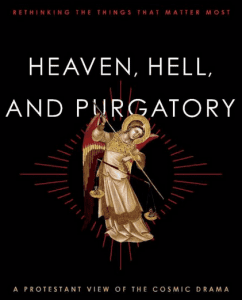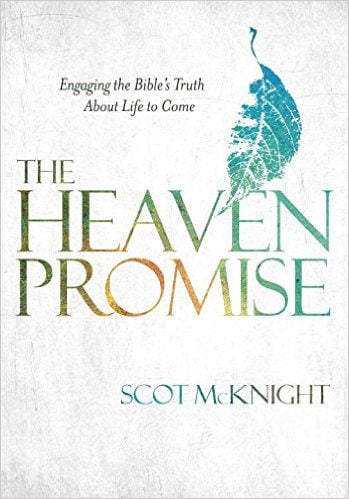 The tendency today among Christians is not so much to deny heaven as a genuine hope and reality but to minimize it as a factor in the faith or, what is worse, to diminish it by saying we ought to focus on the present life (because, after all, heaven is just speculation).
The tendency today among Christians is not so much to deny heaven as a genuine hope and reality but to minimize it as a factor in the faith or, what is worse, to diminish it by saying we ought to focus on the present life (because, after all, heaven is just speculation).
In Jerry Walls very fine new book, Heaven, Hell, and Purgatory, he sketches the belief systems of those who have surrendered hope in heaven.
So today I want to look what happens when we don’t believe in heaven. What’s it really like?
He begins with Bertrand Russell’s famous Alpha determines Omega idea, and I quote from Walls:
That man is the product of causes which had no prevision of the end they were achieving; that his origin, his growth, his hopes and fears, his loves and his beliefs, are but the outcome of accidental collocations of atoms; that no fire, no heroism, no intensity of thought and feeling, can preserve an individual life beyond the grave; that all the labor of the ages, all the devotion, all the inspiration, all the noonday brightness of human genius, are destined to extinction in the vast death of the solar system, and that the whole temple of man’s achievement must inevitably be buried beneath the debris of a universe in ruins—all these things, if not quite beyond dispute, are yet so nearly certain that no philosophy which rejects them can hope to stand. Only within the scaffolding of these truths, only on the firm foundation of unyielding despair, can the soul’s habitation henceforth be safely built (48-49).
Mindless, undetermined origins lead to termination, not a destination. We must accept this cold reality and continue, Russell thinks, to pursue our noblest ideals. Yet, later in life all he could muster was “Outside human desires, there is no moral standard” (52).
Next, consider Richard Taylor, philosopher of the meaning of life.
… who takes the famous myth of Sisyphus as his starting point. Sisyphus, recall, was the mythical character condemned by the gods to push a large stone up a hill, which then rolled back down to the bottom, only to be pushed up again, and again, forever.
The main difference between us and Sisyphus is that whereas he continues to push the stone up the hill forever, we pass the task on to our children. They then pick up where we left off and continue in our steps. Civilizations are built and destroyed, but new ones are built on the rubble of earlier ones. We just keep picking up the stones and building afresh, and the beat goes on. We are all Sisyphus, and we are all rolling stones (54).
All we have in our veins is a will to live, and the drive for meaning is vain. Meaning is the satisfaction we find in our life, that’s it. Walls takes him on by contending that visions like Revelation bring far more meaning and hope than his naked reality of meaningless satisfaction brings.
Next, Thomas Nagel, another philosopher, who exhorts us to embrace the irony of our life.
‘Reference to our small size and short life span and to the fact that all of mankind will eventually vanish without a trace are metaphors for the backward step which permits us to regard ourselves from without and to find the particular form of our lives curious and slightly surprising (57).
In short, then, one of the inevitable “side effects” of intellectual and emotional sophistication is a sense of the absurdity of our lives. But since our intellectual and emotional sophistication is the very thing that makes us human and gives our lives richness and depth, we should not be unduly bothered by the sense of absurdity that comes with it. Rather, we should embrace the irony and live with it (58).
Finally, Keith Parsons, who offers one of the oldest of all despairs of life:
Why not draw the reverse conclusion and say that, since we know life is fleeting, we should strive to experience all the meaning we can in that short compass? The message we should draw from our mortality is this: You have a limited number of days, hours, and minutes. Therefore, you should strive to fill each of those days, hours, and minutes with meaning. You should strive to fill them with learning and gaining wisdom—with compassion for the less fortunate, with love for friends and family, with doing a job well, with fighting against evil and obscurantism, and yes, with enjoying sex, TV, pizza, and ballgames (59).
Carl Sagan, who did not believe in the afterlife or heaven, said this as he approached death
“I would love to believe that when I die, I will live again, that some thinking, feeling, remembering part of me will continue.” A page later, Sagan went on to add, “If there were life after death, I might, no matter when I die, satisfy most of these deep curiosities and longings. But if death is nothing more than an endless sleep, this is a forlorn hope” (64).










